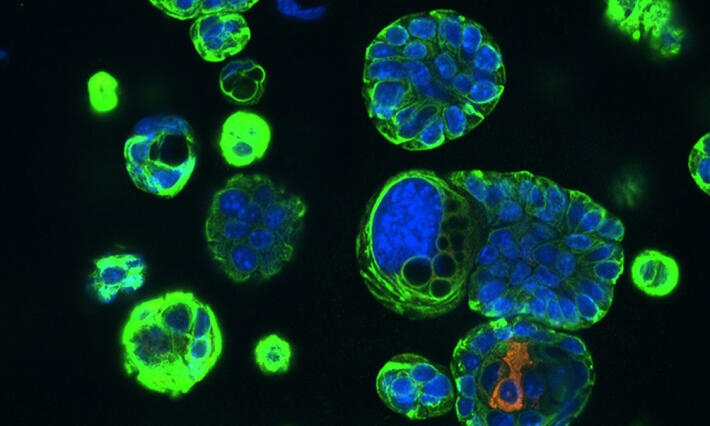Duke Cancer Institute member Gerard C. Blobe, MD, PhD, has been elected as a 2022 AAAS Fellow by the American Association for the Advancement of Science, one of the most distinct honors in the scientific community.
A professor of Medicine, Pharmacology & Cancer Biology, and Cell biology, Blobe was recognized with this lifelong honor for distinguished contributions to the field of cancer biology, particularly in TGF-beta signaling pathways in cancer biology (the focus of his lab) and for tireless mentorship and service.
Blobe directs the DCI Office of Cancer Research Training Education Coordination, which coordinates training programs focusing on cancer physicians, scientists, and health professionals; develops new educational and training opportunities; and serves as the liaison with the CTSI and schools at Duke University with the goal of integrating cancer career opportunities across the Duke system.
Blobe was one of two faculty elected from the Duke University School of Medicine as an 2022 AAAS Fellow. From Duke, Steven B. Haase, PhD, was also elected an AAAS Fellow this year.
From DCI Blobe joins Robert J. Lefkowitz, MD; Joseph Heitman, MD, PhD; Micah A. Luftig, PhD (2019); Mark Dewhirst, DVM, PhD; who were elected as AAAS Fellows in previous years.





